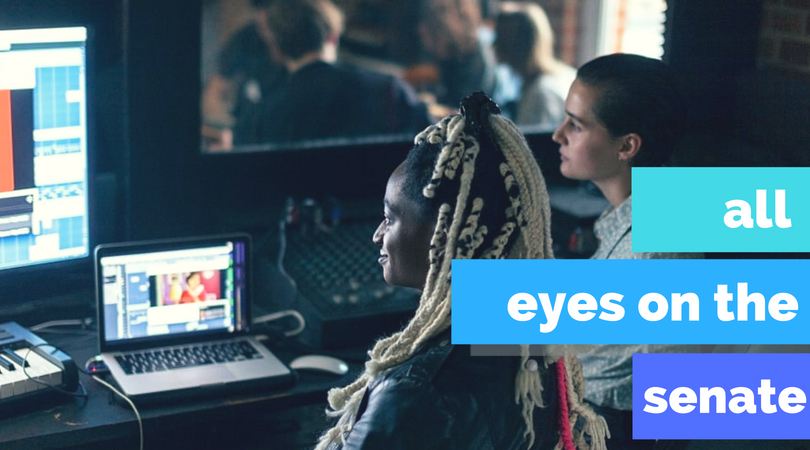ALL EYES ON THE SENATE: How the Music Modernization Act is shaping the future of royalties & property in the music industry
by Bobbi Giel
Posted on May 9, 2018
Image: Getty Images, Hinterhaus Productions
Right now the music industry is buzzing about the Music Modernization Act, which passed in the House last Wednesday with a unanimous vote. This Act acknowledges the changing face of music, and the need for legal guidelines to change along with it. “Music is no longer written on piano rolls, and our laws shouldn’t be based on that technology either,” said Robert Goodlatte during floor discussions, a Republican representative from Virginia who co-sponsored the bill.
Though the bill “doesn’t address everything,” as Rep. Ted Deutch (D-FL) pointed out, it pushes for significant improvements in four crucial areas: streamlining of the mechanical licensing system, insurance of royalty protections for performances before 1972, creating a standard rate for music royalties, and enforcing a statutory right to recognition for music creators, including producers, engineers, and mixers. These aims hope to ensure that music industry workers, particularly those working behind the scenes, receive deserved recognition and compensation for their work.
Next, the bill travels to the Senate. However, if the unanimous vote from last week is any indicator, the MMA is not expected to meet much pushback on the Senate floor next month.
Recording Academy President & CEO Neil Portnow said: “Music creators compose the soundtrack to our lives. These creators deserve to be paid a fair wage for their work,” said Recording Academy President & CEO Neil Portnow in response to the House vote. “The passage of the Music Modernization Act in the House of Representatives is a historic step forward for all music creators, ensuring that they are credited, paid, and shown the respect they deserve for the impact they have on our culture and daily life.”
Building off of our discussion during World Intellectual Property Day, the MMA reminds us again of the importance of knowing our rights as musicians. All producers, engineers, writers, mixers, and creatives in the music industry deserve proper recognition for their work. The first step towards this is understanding what rights the current system allows us, and knowing what additional rights to push for in legislative changes like this one. You can learn more about the act here.
